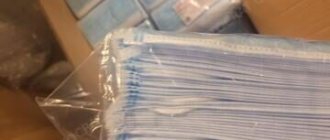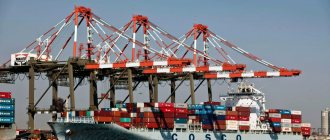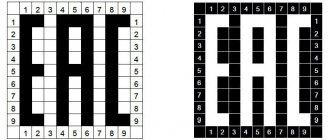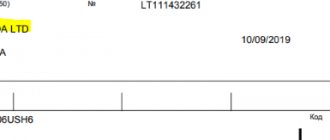Declaration of Conformity – is a mandatory document by which the applicant, using his own evidence or evidence obtained directly with the participation of the certification body, certifies that the products he produces and releases for free circulation comply with all the requirements and provisions of state regulations and standards. This type of permit has equal legal force in comparison with a certificate of conformity.
from 4,000 rub. Cost of filing a declaration
Declaration of products can only be in a mandatory form
The object of the declaration, in contrast to the mandatory certificate, is only the goods or products. The obligation to declare products applies to both Russian products and imported products related to specific types of goods subject to declaration. Verification of the need to obtain a declaration of conformity of products is carried out on the basis of the correct determination of the HS codes and OKP and the range of goods for which the declaration of conformity is drawn up and issued.
Declaration of products can only be in a mandatory form, since there is no voluntary declaration of conformity. Also, a declaration in Russia is not issued for a foreign manufacturer.
Declaration of conformity of goods is mandatory for food products, cosmetic products, clothing, footwear, household goods and furniture, etc. The full list of products for declaration is indicated in the Unified List, presented in the form of the name of the product group and the OKP code assigned to it.
Registration of a declaration will be required for introducing products onto the market, importing goods into the territory of Russia or the Customs Union and their further sale in retail chains.
- Registration deadlines
- Registration cost
- Registration process
- Design scheme
Types of declarations of conformity accepted and valid in Russia
The following types of declaration of conformity are distinguished:
According to the certification system there are:
- declaration drawn up in the GOST R system;
- declaration of compliance with the requirements of technical regulations, including a fire safety declaration;
- declaration of conformity with the technical regulations of the Customs Union.
These types of documents do not have fundamental differences. As a rule, they differ only in the regulatory document on the basis of which the conformity of products is verified during testing or research. In the GOST R system, a declaration is drawn up taking into account the norms, rules and requirements of a specific GOST. When issuing TR declarations, product compliance with the requirements specified in specific technical regulations is checked.
Technical regulations of Russia and the GOST R certification system are gradually being replaced by unified technical regulations of the Customs Union.
According to the subject of registration, according to federal law, there are:
- declarations for a contract (for a Russian company);
- declaration for a Russian manufacturer or one officially registered in the Russian Federation.
By type of evidence provided by the applicant:
- declarations taking into account their own evidentiary materials;
- declarations based on their own evidence base, as well as evidence provided by the certification body (center) or an accredited testing laboratory.
What types of products are subject to declaration?
Not every product group requires a CU TR Declaration. It is better to check the latest information on the website of the relevant authority or call the nearest branch, as the list may be updated or changed significantly.
Currently the list includes:
- shoes;
- cloth;
- Perfumes and cosmetics;
- packaging and packaging materials;
- low voltage equipment;
- industrial fans;
- cables;
- plastic and wooden windows;
- grains and cereals;
- food products;
- furniture;
- individual protection means;
- light industrial goods;
This is not a complete list of products; it lists the most popular product groups.
Schemes for accepting a declaration of conformity
For products of foreign origin included in the list of mandatory declarations, the following options for completing the declaration are provided:
- for the consignment – in this case the applicant is a Russian company (seller). This scheme is most often used for indirect supply contracts;
- for serial production - the applicant is a Russian resident who performs the functions of a foreign manufacturer on the basis of a signed (concluded) agreement. Can only be used for direct supply contracts.
Based on existing declaration schemes, the declarant in Russia can only be an individual entrepreneur (legal entity) registered in the prescribed manner. In this case, the declarant, representing the interests of the foreign manufacturer, assumes the implementation of his functions to ensure compliance of the supplied goods with the requirements of legislation, technical regulations, as well as international and Russian standards, including bearing some responsibility for the non-compliance of the product or goods with these requirements.
In addition, legislative rules and regulations provide for two possible declaration schemes:
- acceptance of the declaration using one’s own evidence (protocols of acceptance and other tests carried out by the applicant);
- adoption of a declaration using evidence obtained with the participation of a third party (quality system certificate, protocols of independent laboratories).
In the case of declaration by a Russian resident or a manufacturer performing the functions of a foreign manufacturer, the applicability of a certain scheme is determined by the same list of products related to mandatory declaration.
For the applicant-seller, the availability of test reports from an accredited laboratory when filing a declaration for a batch of foreign-made products is a necessary condition, regardless of the type or type of product.
As in cases of issuing certificates of conformity, the declaration is issued only after receiving all other mandatory permits such as: veterinary certificates, registration certificates, etc. The details of these documents must be indicated as the basis for issuing declarations along with the evidence that is provided for in the declaration scheme. The exception is the sanitary-epidemiological conclusion: if the product does not require mandatory state registration, but requires confirmation of its compliance with hygienic indicators, and the applicant does not have this confirmation, then in this case it is necessary to conduct additional hygienic tests. In this case, the number of the corresponding protocol is included in the grounds for issuing and receiving the declaration.
The basis for receiving the declaration may also include other documents that indirectly or directly indicate the conformity of the product (for example, a certificate of voluntary certification systems).
List of current technical regulations
Since 2012, the following technical regulations have come into force:
| 15.02.12 | On the safety of pyrotechnic products (TR TS 006/2011) |
| 01.06.12 | On the safety of personal protective equipment (TR TS 019/2011) |
| 01.07.12 | On packaging safety (TR TS 005/2011) |
| 01.07.12 | On the safety of products intended for children and adolescents (TR CU 007/2011) |
| 01.07.12 | On the safety of toys (TR TS 008/2011) |
| 01.07.12 | On the safety of perfumery and cosmetic products (TR CU 009/2011) |
| 01.07.12 | On the safety of light industry products (TR TS 017/2011) |
| 31.12.12 | On the requirements for automobile and aviation gasoline, diesel and marine fuel, jet fuel and fuel oil (TR TS 013/2011) |
Since 2013 the following have come into force:
| 15.02.13 | On the safety of devices operating on gaseous fuel (TR TS 016/2011) |
| 15.02.13 | Electromagnetic compatibility of technical equipment (TR TS 020/2011) |
| 15.02.13 | On the safety of low-voltage equipment (TR TS 004/2011) |
| 15.02.13 | On the safety of machinery and equipment (TR TS 010/2011) |
| 15.02.13 | Safety of elevators (TR TS 011/2011) |
| 15.02.13 | On the safety of equipment for work in explosive environments (TR TS 012/2011) |
| 01.07.13 | On grain safety (TR TS 015/2011) |
| 01.07.13 | On food safety (TR TS 021/2011) |
| 01.07.13 | Food products regarding their labeling (TR CU 022/2011) |
| 01.07.13 | Technical regulations for juice products from fruits and vegetables (TR CU 023/2011) |
| 01.07.13 | Technical regulations for fat and oil products (TR CU 024/2011) |
| 01.07.13 | On the safety of certain types of specialized food products, including dietary therapeutic and dietary preventive nutrition (TR CU 027/2012) |
| 01.07.13 | Safety requirements for food additives, flavorings and technological aids (TR CU 029/2012) |
Since 2014, the following technical regulations have come into force:
| 01.02.14 | On the safety of small vessels (TR TS 026/2012) |
| 01.02.14 | On the safety of equipment operating under excess pressure (TR TS 032/2013) |
| 01.03.14 | On requirements for lubricants, oils and special liquids (TR TS 030/2012) |
| 01.05.14 | On the safety of milk and dairy products (TR CU 033/2013) |
| 01.06.14 | On the safety of furniture products (TR TS 025/2012) |
| 01.06.14 | On the safety of explosives and products based on them (TR CU 028/2012) |
| 02.08.14 | On the safety of railway rolling stock (TR TS 001/2011) |
| 02.08.14 | On the safety of high-speed rail transport (TR TS 002/2011) |
| 02.08.14 | On the safety of railway transport infrastructure (TR TS 003/2011) |
Since 2015, the following TRs have come into force:
| 01.01.15 | On the safety of wheeled vehicles (TR TS 018/2011) |
| 15.02.15 | On the safety of agricultural and forestry tractors and trailers for them (TR TS 031/2012) |
| 15.02.15 | Road safety (TR TS 014/2011) |
From 2021:
| 15.05.16 | Technical regulations for tobacco products (TR CU 035/2014) |
From 2021:
| 01.09.17 | On the safety of fish and fish products (TR TS 040-2016-2016) |
From 2021:
| 01.01.18 | Requirements for liquefied hydrocarbon gases for their use as fuel (EAEU TR 036/2016) |
| 01.03.18 | On restricting the use of hazardous substances in electrical and radio electronics products (EAEU TR 037/2016) |
| 18.04.18 | On the safety of attractions (TR EAEU 038/2016) |
| 17.11.18 | On the safety of equipment for children's playgrounds (EAEU TR 042/2017) |
From 2021:
| 01.01.19 | On the safety of packaged drinking water, including natural mineral water (EAEU TR 044/2017) |
The procedure for obtaining declarations of conformity in the GOST R system
Registration of the declaration (procedure for declaring products) takes place based on the following stages:
- sending a request (application) to the certification body with a description of the declared product in free form and the proposed declaration scheme;
- confirmation of receipt of the request from the certification body;
- processing the application and clarifying related issues;
- transfer by the applicant of procedural documents;
- within 7 days, the certification body verifies: the presence of this product in the list of goods confirmed by the declaration; the manufacturer's competence to accept the declaration; correctness and completeness of the indication of regulatory documents; availability of copies of documents provided for the declared products; correct completion of the declaration form;
- analysis of the data received - based on the results of the inspection, the certification body informs the applicant (manufacturer, performer, seller) about the need to eliminate or correct identified inconsistencies with the approved requirements;
- drawing up a declaration program indicating the conditions for all work. The declaration scheme and test methodology are determined by the certification body on the basis of established uniform rules and regulations necessary for the correct implementation of confirmation of conformity;
- organization of testing;
- registration of protocols in an accredited laboratory;
- registration of the declaration - is carried out by assigning a registration number to the document, which contains the identification code (designation) of the certification body and the serial number in the register;
- transfer of the finished document to the applicant.
The registered declaration, together with the documents on the basis of which it was issued, is kept by the manufacturer (applicant) for at least 3 years upon expiration of its validity period.
Declarations can be drawn up either on a special form or on regular white paper, which does not have any degree of protection. This document is certified by two seals: the certification body and the applicant.
Products that have passed mandatory declaration are subject to marking with a conformity mark without indicating the codes of the certification body.
Declarations are drawn up and issued separately for each manufacturer and type of product (only a homogeneous group of goods from the same manufacturer can be combined into one sample declaration). In cases of a large number of models or articles of goods, several declarations are drawn up, since there are no attachments to the declaration.
There is no specific form for the declaration of conformity, but there is a mandatory list of information that it must contain:
- location and name of manufacturer and manufacturer;
- information about the object of declaration, allowing it to be identified indicating the HS codes and OKP;
- name of the technical regulations or other regulatory documents for compliance with the requirements of which the products are confirmed;
- indication of the conformity declaration scheme;
- data on the tests (research) and measurements carried out, as well as documents that served as the basis for confirming the products with the requirements of current standards;
- an application from the applicant about the safety of the manufactured product when used for its intended purpose and the adoption of measures to ensure product compliance;
- validity period and date of acceptance of the declaration;
- other information required by law.
To obtain a declaration of conformity for domestically produced products, the applicant must provide a certain package of documents:
- application for registration of a declaration;
- OGRN and TIN certificate;
- regulatory and technical documentation;
- operating instructions and product data sheet;
- document on ownership of production areas (lease agreement).
For imported products or those supplied under a contract, the following documents will be required:
- application for registration;
- copies of contracts for the supply of products;
- copies of the statutory documents of the product manufacturer;
- OGRN and TIN certificate;
- description of the declared product: appearance, composition, article number, characteristics, etc.
In theory, the applicant himself must set the validity period of the declaration based on the expected period of sale of the declared batch of goods or the duration of production of these types of products. However, in practice, certification bodies most often limit the validity of declarations to the validity of hygienic conclusions and other mandatory permits, which are indicated on the basis for issuing or accepting a declaration of conformity.
Penalties for issuing an unreliable certificate
bears full responsibility for compliance with the rules of testing and issuance of the TR CU certificate. In case of substitution of documents and test samples, as well as concealment of important production facts, the applicant is also responsible for issuing an unreliable certificate.
To avoid a fine, the applicant must submit a complete package of original documents and provide the laboratory with samples to conduct a full check of the quality of the goods and the conditions of their production.
Please note: companies that offer you to pay for a ready-made TR CU certificate, bypassing important procedures, are engaged in fraud.
If the characteristics of the product do not allow simplified certification according to scheme No. 9C and you are not required to provide a sample of the product to the laboratory, we recommend that you make sure that the certification center offering you its services is actually in the register of vehicle regulatory authorities. Most likely this is not the case.
The absence of permits for products subject to mandatory certification may result in a fine of up to 300,000 rubles and confiscation of goods upon repeated violation.
Declaration of Conformity
Declaration of conformity is an official document certifying that the product meets the requirements of mandatory certification. Namely, technical regulations, standards, Unified sanitary-epidemiological and hygienic requirements for goods subject to sanitary-epidemiological supervision (control), hygienic standards, regulatory and technical documentation, etc. A declaration of conformity can only be issued by a legal entity registered on the territory of the Russian Federation (if the declaration of conformity is drawn up in the GOST R certification system) or on the territory of the Customs Union (if the declaration of conformity is drawn up in accordance with the technical regulations of the Customs Union).
The declaration of conformity is registered for a period of no more than 5 years.
There is no specific form for the declaration of conformity. The declaration of conformity is issued with a serial number by an accredited certification body on a white sheet of A4 format. For a declaration of conformity issued in the GOST R certification system, the seal of the certification body and the applicant is required. For the declaration of conformity according to the technical regulations of the Customs Union, only the seal of the applicant. The validity of this declaration of conformity can be easily verified using the register database on the official website of RosAccreditation. All certification documents issued by us are 100% legal! We protect and protect our clients from counterfeits, since our image depends directly on your image!
Stages of obtaining a TR CU certificate
Obtaining a TR CU certificate occurs in several stages. The process begins with an application. It must be submitted by the manufacturer/seller. Next, a complete package of documentation is prepared and the application is considered.
The next stage is the transfer of samples to the laboratory for experts who will conduct tests. The work, as at all stages, is carried out by qualified specialists using modern equipment.
We also note that if the certification scheme provides for an analysis of the production process, then specialists will also examine the production conditions/quality management system.
Next comes logging of the results. They will already serve as the basis for making a decision on issuing/refusing a certificate.





